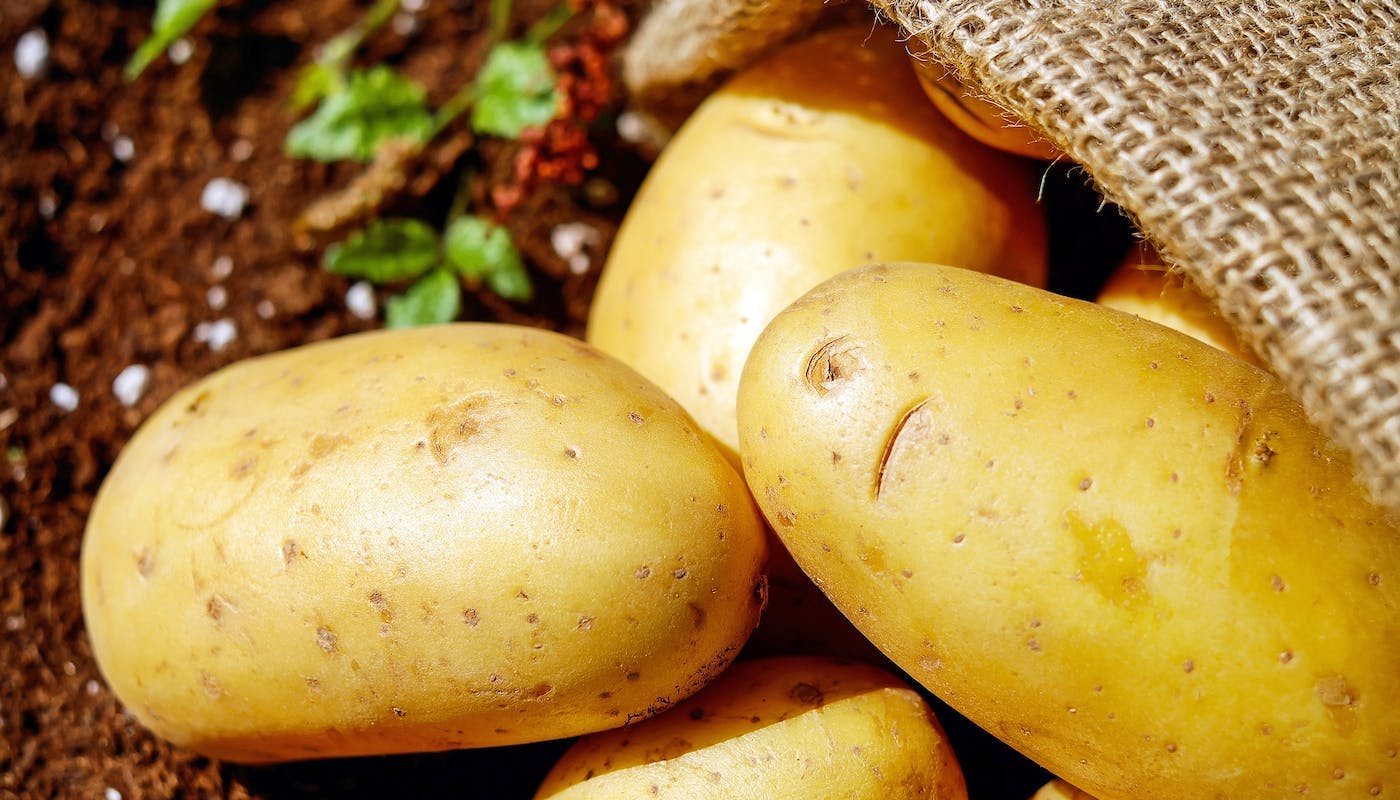Can Dogs Eat Potatoes?
Dogs are weird. If they’re not snuffling for rabbit poop, they’re licking the floor or sticking their noses in the fridge. If your dog just emerged from the kitchen with half a chewed potato… well, here’s what you need to know.
Is Potato Safe for Dogs?
If you’re in a rush, here’s the summary: RAW POTATO can be toxic for dogs, causing gastric upset (vomit and diarrhoea) and possibly heart or respiratory problems – at a very high dose – so if they ate it, call your vet and tell them how much potato has vanished.
If it was COOKED POTATO, your dog is probably going to be okay. In fact, most dogs love a leftover hash brown, and after consuming small amounts won’t feel any ill effects at all. Keep a watchful eye over them for a while to be sure.
Raw Potato = Toxic For Dogs
Your dog may escape with an upset stomach, but the symptoms (which will appear within 6-12 hours) can become much worse and include lethargy, vomiting and even heart problems.
So if your dog has raided the potato sack, it’s best to notify your vet and keep watch on them for symptoms – take your vet’s advice. They can look at your dog’s latest weight and see whether they’ve ingested a dangerous amount.
Cooked Potatoes = Beloved Canine Snack
Potatoes contain lots of important nutrients like vitamin B6, vitamin C and iron. So you might notice potato listed in the ingredients of dog food. But like almost all foods, this one’s a ‘hot potato’ in the dog world: some dogs are allergic to potatoes, while other dogs are obsessed with them.
Our advice? We probably wouldn’t include potatoes in their everyday diet, but if the dog’s looking at our baked potato with their soul weeping from their eyes… we’d definitely share a little bite.
Could Vegetables Be Associated with Heart Disease?
The researchers studied dogs diagnosed with DCM (a disease which affects the heart muscle) and found low levels of taurine (an amino acid) in the dogs’ blood. They also discovered that many of these dogs were fed grain-free food with a high vegetable content.
Although further research is needed, the researchers at the UC Davis School have recommended that owners look carefully at their dogs’ food and consider changing it if it contains peas, lentils or potatoes.
